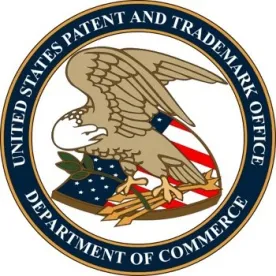Reversing a district court’s dismissal of a patent applicant’s claim that the US Patent and Trademark Office (PTO) acted unlawfully in denying a petition for rulemaking on subject matter jurisdiction grounds, the US Court of Appeals for the Federal Circuit nevertheless found that the claim was either time-barred or reliant on mistaken statutory interpretation. Hyatt v. USPTO, Case No.17-1722 (Fed. Cir. Sept. 24, 2018) (Hughes, J).
Hyatt filed a petition for rulemaking with the PTO, requesting that it nullify Manual of Patent Examination Procedure § 1207.04, which allows examiners to reopen prosecution in response to appellant’s appeal brief. Hyatt argued that § 1207.04:
- Conflicts with patent law’s creation of a right for applicants to appeal rejections
- Conflicts with the implicit disallowance of patent regulation regarding reopening prosecution after an appeal brief is filed
- Was improperly adopted without notice-and-comment rulemaking
The PTO denied the petition, and Hyatt filed a suit challenging the PTO’s denial in the US District Court for the District of Nevada under the Administrative Procedure Act (APA). The district court granted the PTO’s motion for summary judgment and dismissed Hyatt’s claims for lack of subject matter jurisdiction. The district court did not transfer Hyatt’s case to either the Federal Circuit or the Eastern District of Virginia, citing the doctrine of claim preclusion stemming from a prior suit. Hyatt appealed.
On appeal, the Federal Circuit found that the Nevada district court had subject matter jurisdiction over Hyatt’s challenge under the APA. The Court explained that although the Federal Circuit and the US District Court for the Eastern District of Virginia have exclusive jurisdiction to review final PTAB decisions, the PTO’s denial of Hyatt’s petition was neither a Patent Trial and Appeal Board (PTAB) decision nor an intermediate action that would culminate in a final agency action exclusively reviewable by those two courts.
The Federal Circuit also disagreed that Hyatt’s claims were precluded by his prior suit. Hyatt’s prior suit unsuccessfully challenged the PTO’s reopening of prosecution of his pending applications, alleging that reopening those prosecutions evidenced a pattern of unreasonable delay in final agency action, and sought injunctive relief against the PTO. The Court found that Hyatt’s prior lawsuit related to a different set of facts than the present lawsuit. Specifically, because Hyatt did not seek relief for the applications in this suit, the Court disagreed that he was collaterally attacking the prior decision regarding PTO prosecution delay.
The Federal Circuit agreed with the PTO that Hyatt’s claims based on conflicts with patent regulation and lack of notice and comment were time barred under the statute of limitations. The applicable statute of limitations bars civil actions against an agency if not filed within six years after the right of action first accrues. The Court explained that those two claims were not substantive in nature and the right to seek relief accrued at the time of the promulgation of the regulation, which in this case would be 2005. Hyatt filed his case in 2016.
However, the Federal Circuit concluded that Hyatt’s claim based on violation of patent law was timely. According to the Court, this claim was substantive, and the right of action accrued at the time of an adverse decision against the plaintiff. The PTO denied Hyatt’s petition for rulemaking in 2015, which constituted an adverse application of § 1207.04 against him only one year before he filed the suit. Nevertheless, the Court explained that the text of the patent law does not require the PTAB to reach the merits of every appeal filed.



 />i
/>i

